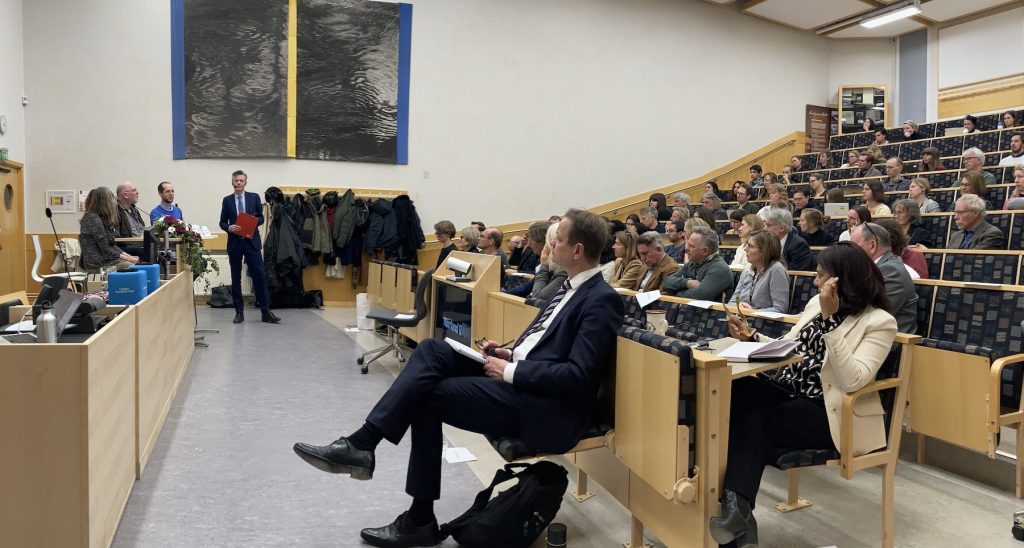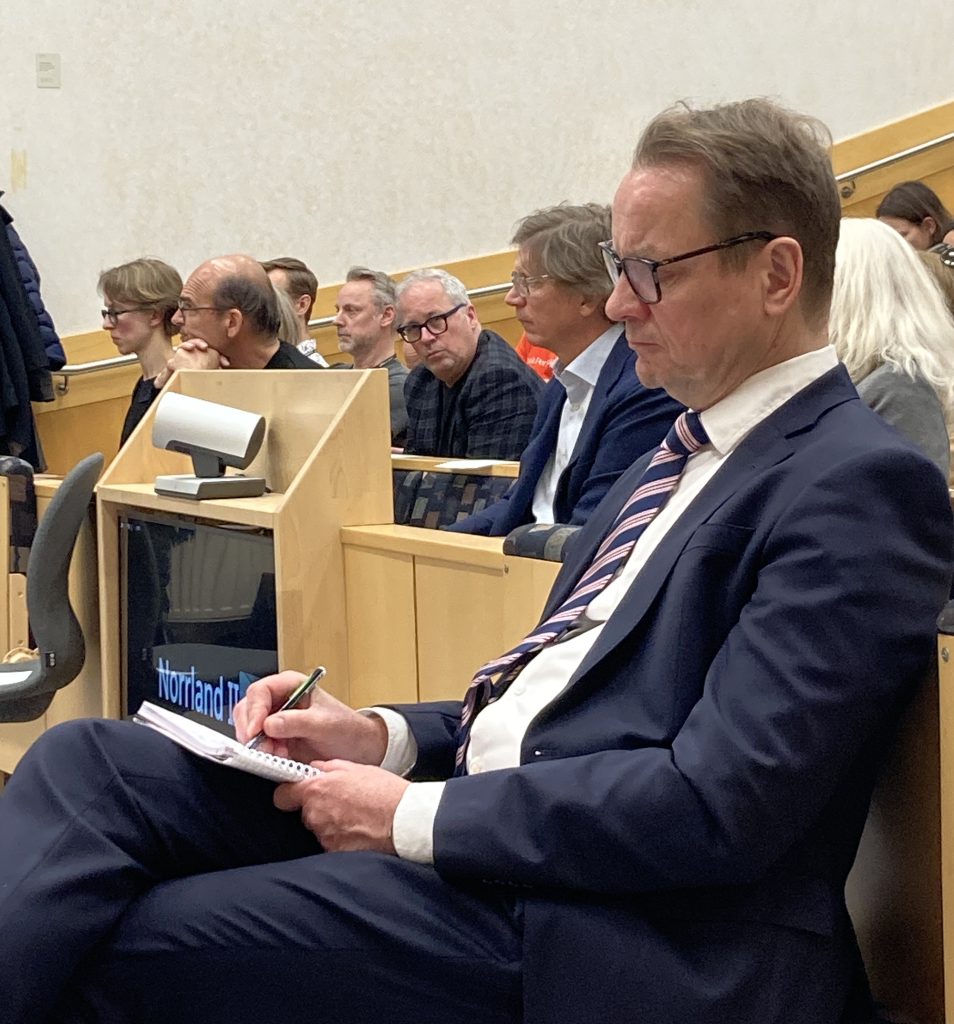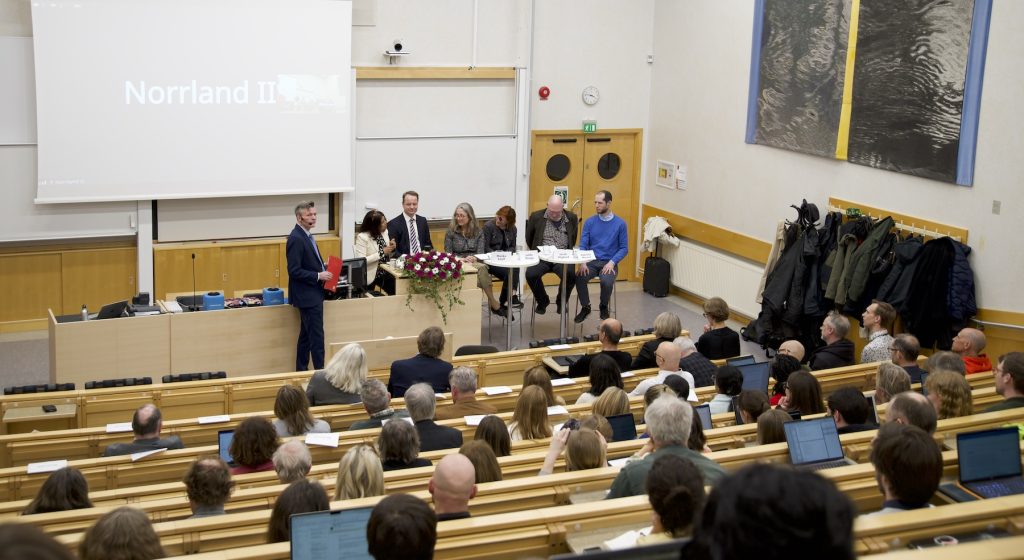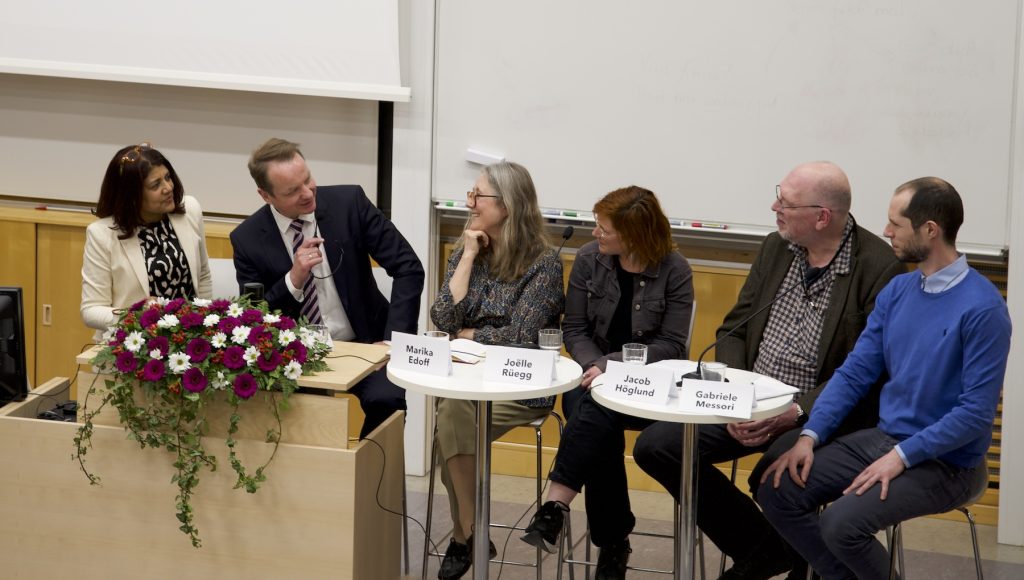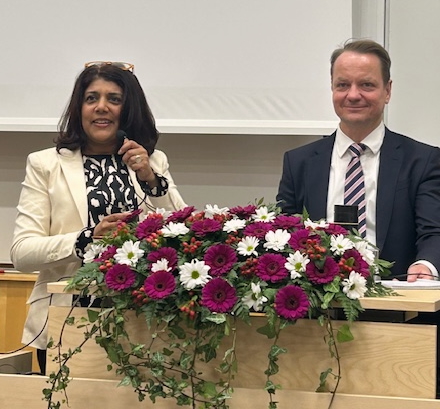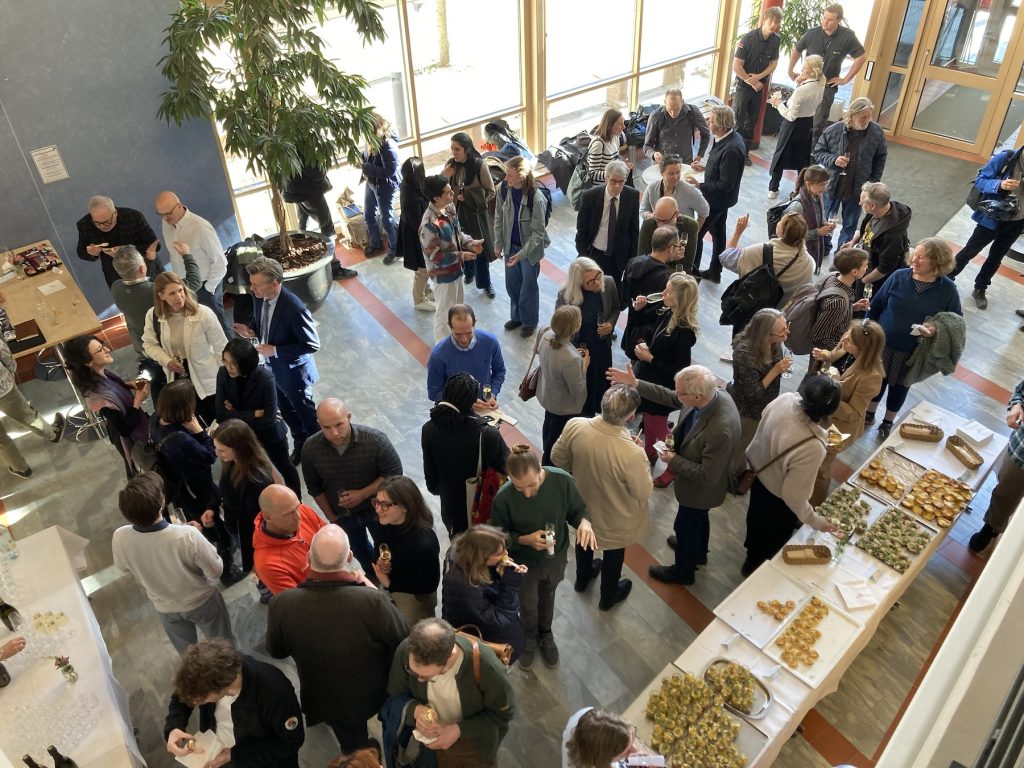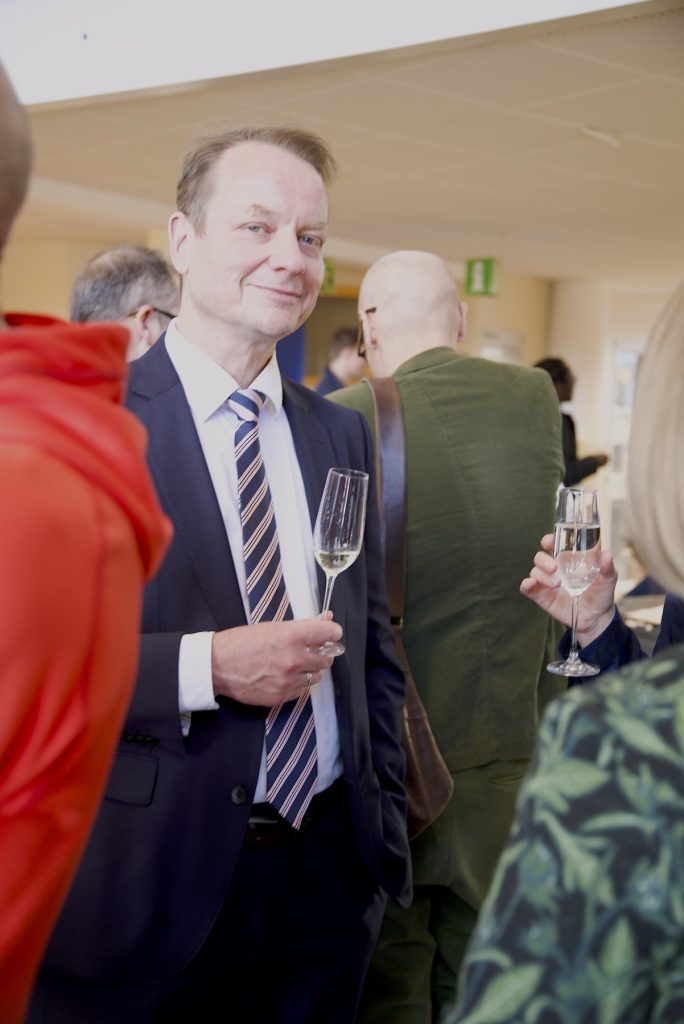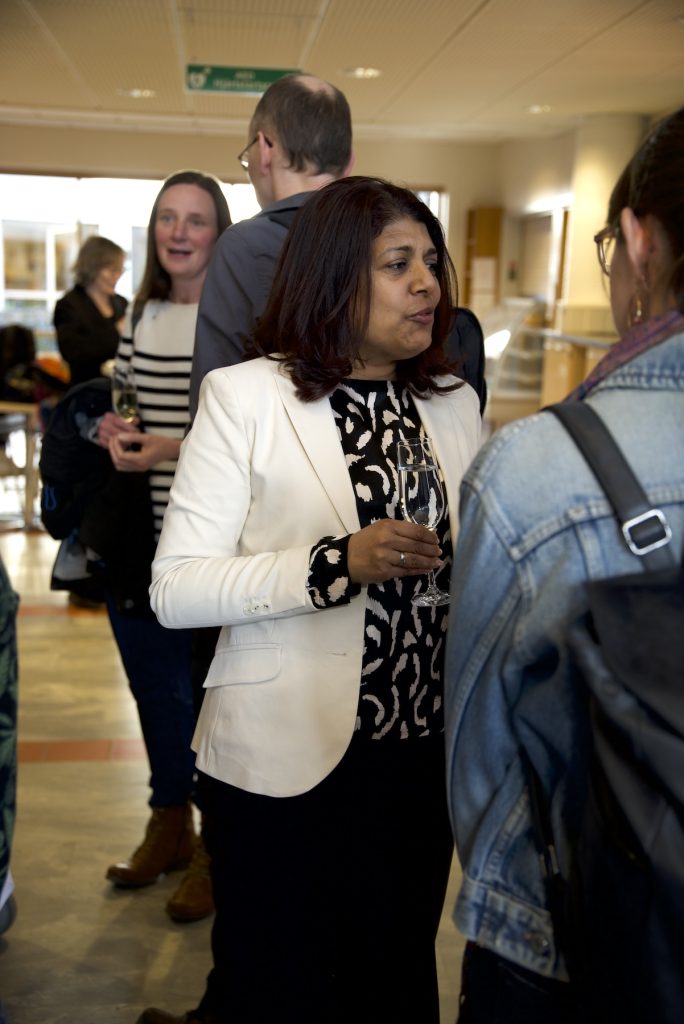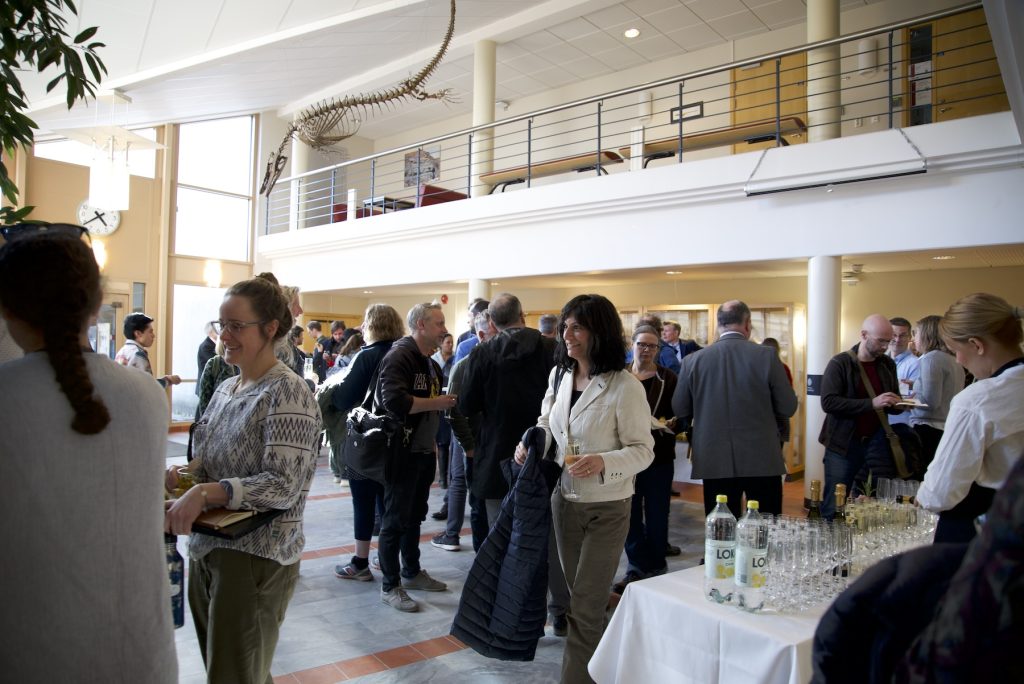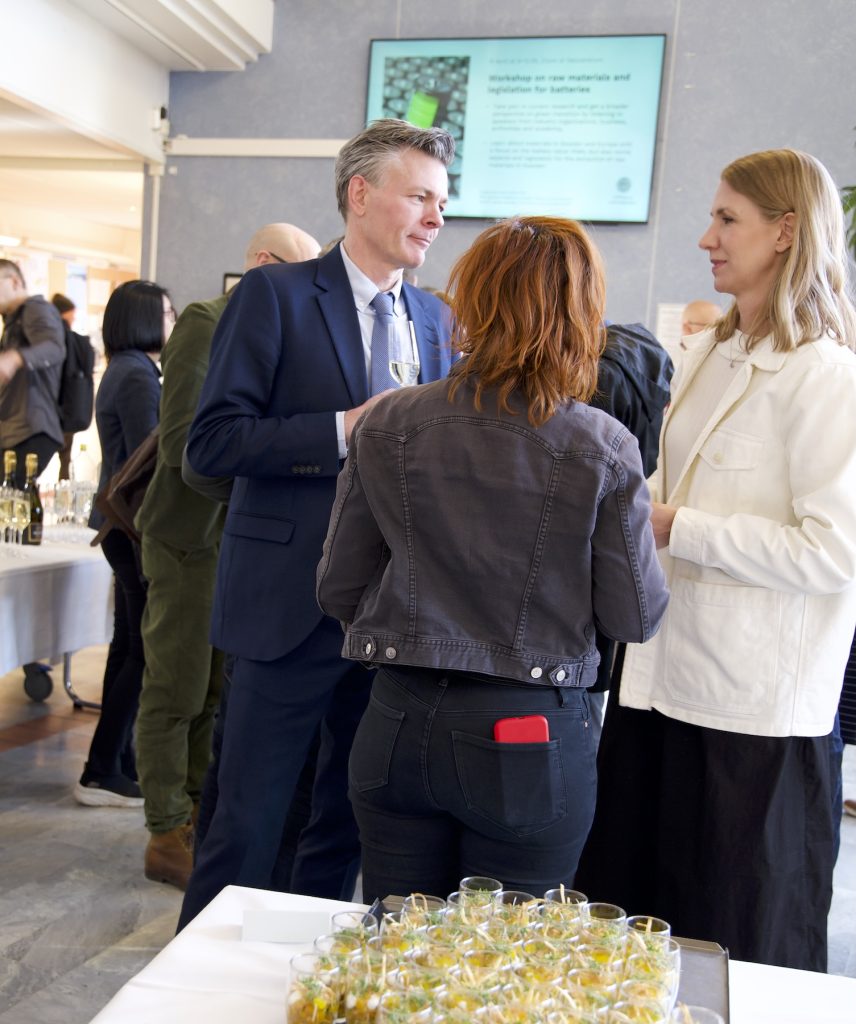On 7 April 2025, the Zennström visiting professors in Climate Change Leadership, Aarti Gupta and Frank Biermann, delivered their inaugural lecture at Geocentrum, Uppsala University. The event, titled Science and Governance for the Planet, was opened by Vice-Chancellor Anders Hagfeldt and followed by a panel discussion on The Triple Planetary Crisis in Science and Policy. It brought together scholars and students eager to engage with urgent questions at the intersection of climate science and global governance.
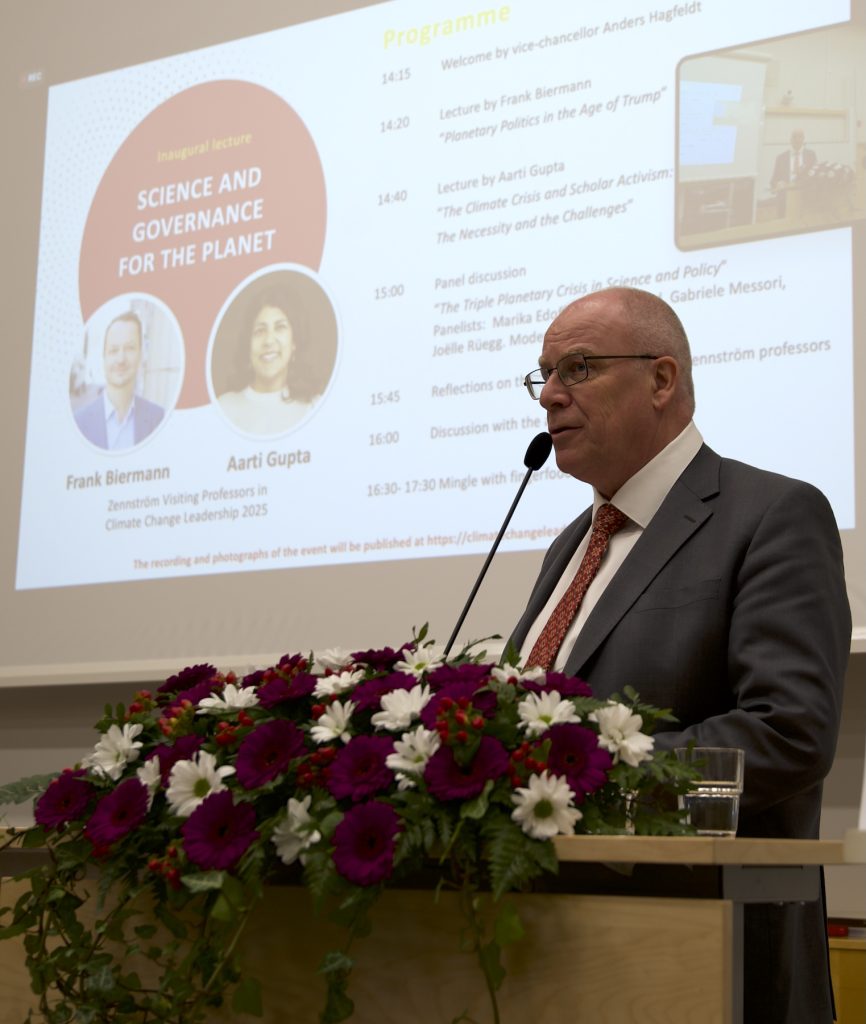
Planetary crisis in the time of Trump
“If you talk about planetary politics, you have to talk about climate change.”
Frank Biermann, Professor of Global Sustainability Governance at Utrecht University and founder of the Earth System Governance Project, reflected on the state of planetary governance in an increasingly fractured world. He spoke about the theme of the Planetary crisis in the time of Trump, focusing on the impact of disengagement of the United States from international climate cooperation. According to Biermann, we are witnessing the end of what he described as “the long 1990s”—a period marked by optimism, global cooperation, and a belief in the progressive realization of a universal order. That era, he argued, is rapidly giving way to one of fragmentation, as the United States retreats from its commitments to the Sustainable Development Goals, the Paris Agreement, and possibly even the United Nations Framework Convention on Climate Change.
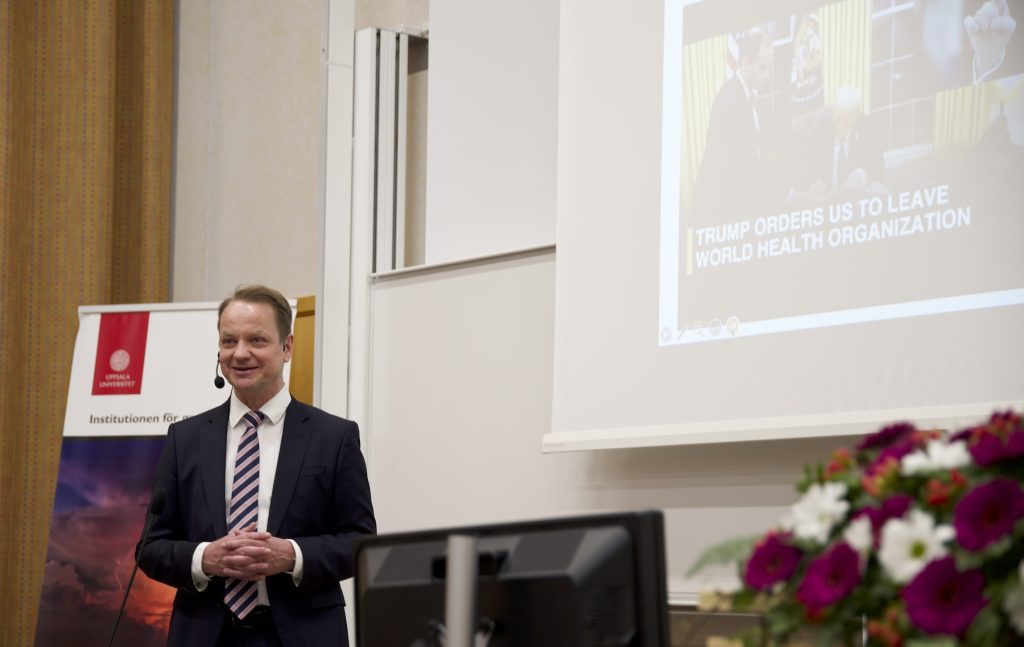
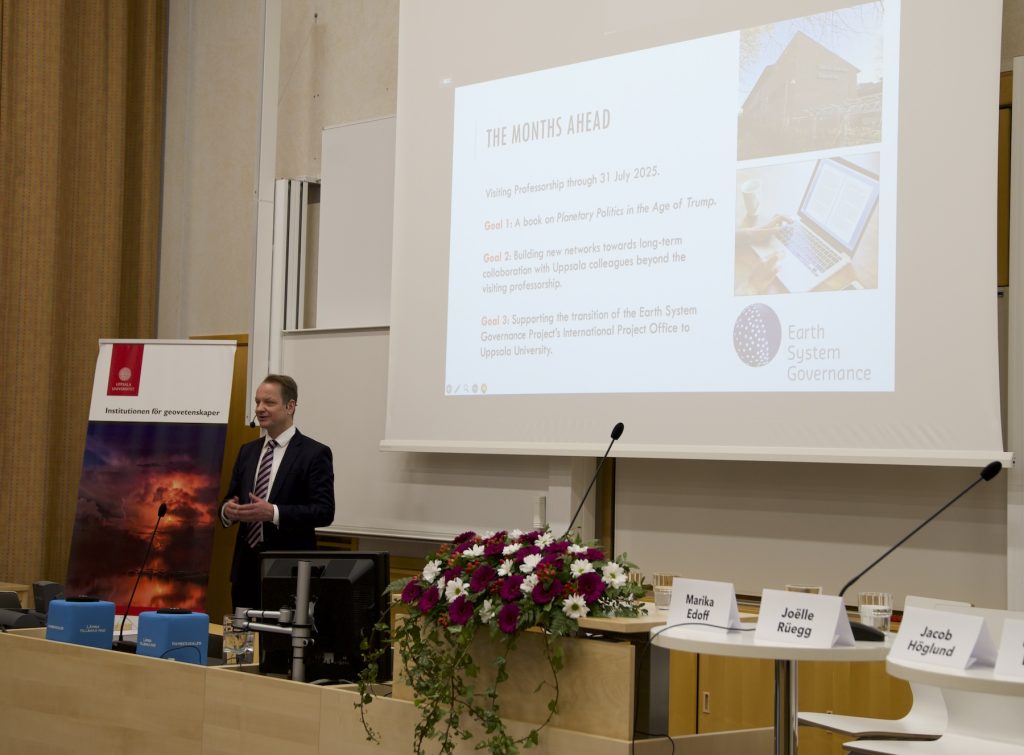
In this changing geopolitical landscape, Biermann posed difficult questions about how the international community might continue to work toward sustainable development in the absence of willing superpowers. He suggested that new institutional architectures may be necessary that can operate with or without U.S. participation. He explored the possibilities of creating a layered UN and setting up institutions without the US and other similar countries, such as a Planetary Protection Council or a UN Sustainable Development Council.
He also raised the critical issue of funding. With the largest contributor to international development work stepping back, how can climate initiatives be financed? One proposal he explored was the introduction of a global aviation tax, perhaps designed to be progressive by targeting frequent flyers.
Beyond institutional design and finance, Biermann highlighted the problem of planetary justice. The climate crisis, he emphasized, is not an issue caused by humanity as a whole, but rather by a small proportion of the global population, the wealthiest ten percent. Addressing climate change, therefore, also means confronting entrenched inequalities. He concluded his talk by underlining the need to democratize global governance systems in an age when many governments are growing more authoritarian.
While in Uppsala, Biermann expressed his wish to contribute to the development of research networks that will endure beyond his professorship. He also plans to begin work on a publication that explores the politics of planetary governance in the era of Trump. In addition, he hopes to support and strengthen the Earth System Governance Project, which is a global network of hundreds of scholars that now has its International Project Office hosted at Uppsala University.
The climate crisis and scholar activism
The second part of the lecture was delivered by Aarti Gupta, Professor of Global Environmental Governance at Wageningen University. She spoke about The Climate Crisis and Scholar Activism: The Necessity and the Challenges. She began by posing a series of urgent and provocative questions: What role should researchers play in today’s world? What responsibilities do scientists have in their engagement with society? And what can society rightfully expect from the scientific community?
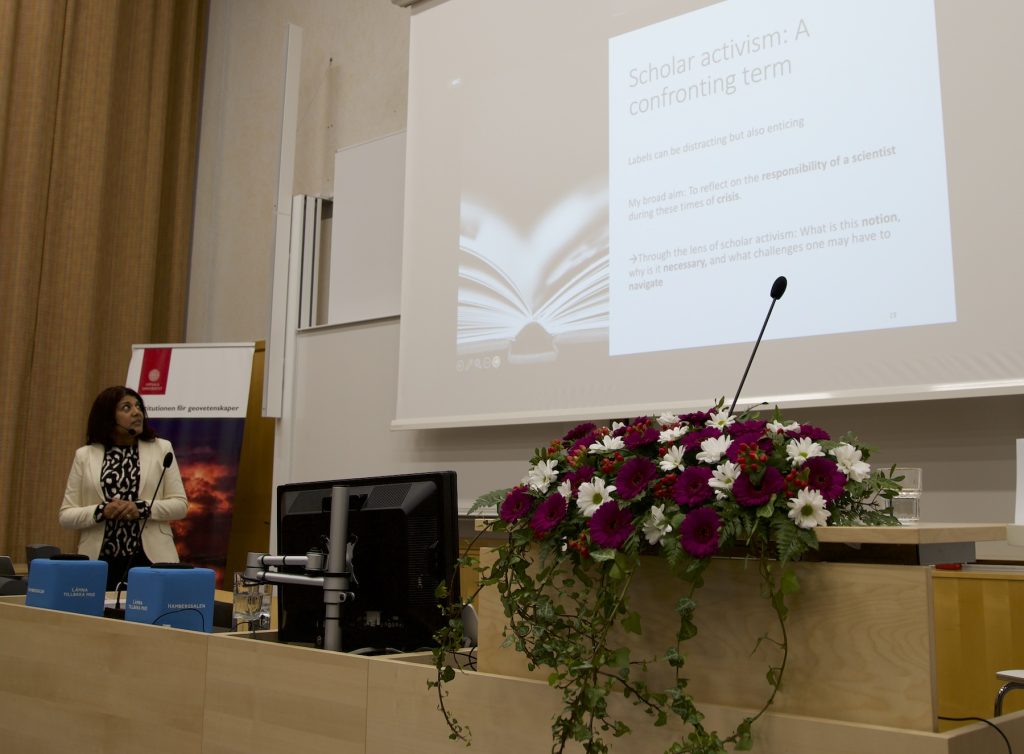
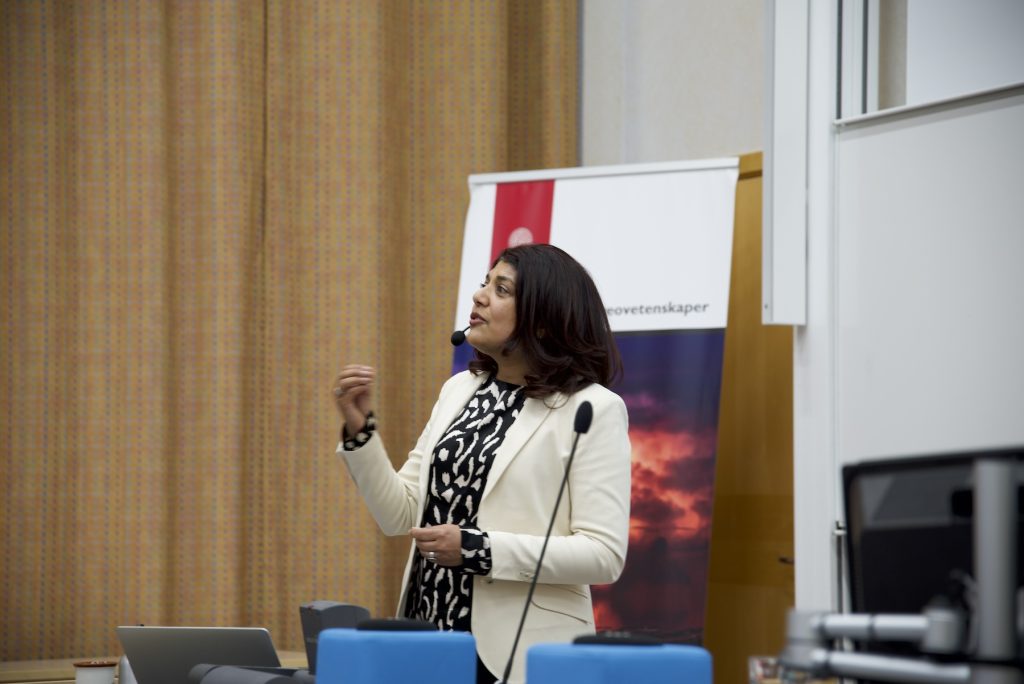
Gupta argued that the time when researchers could remain in the ivory tower has passed. We are entering an era in which the boundaries between science and society are shifting, and scientists are increasingly expected to engage with public discourse, policy debates, and contested technologies. This shift, however, comes with its own set of dilemmas. What is the correct way to engage? How should scientists act when the science itself is uncertain or contested? What happens when scientists disagree on the best course of action?
These questions are particularly acute in the context of emerging technologies such as solar geoengineering. This is a technique that involves injecting aerosols into the stratosphere to reflect sunlight and reduce global temperatures. Gupta’s research focuses, among many other issues, on this highly controversial area and the ecological and geopolitical risks associated with the technology. In her view, this is a critical moment to engage with such issues. Once implementation begins, the space for deliberation may quickly disappear.
“Once a technology is developed, it will be deployed. History teaches us that.”
In response to the challenges posed by solar geoengineering, a platform of researchers has been formed, and an open letter has now been signed by over 540 scientists from 67 countries, calling for an International Non-Use Agreement on solar geoengineering. This initiative has aimed to reframe media narratives, influence policy arenas, and advocate for more ethically grounded and precautionary approaches.
Gupta also spoke about the personal and professional challenges that come with scholar activism. Engaging publicly in controversial issues can raise questions about credibility and polarization. The strain on time and resources is another issue. Yet she insisted that neutrality is not always an option. “We cannot afford to be pessimists,” she said, underscoring the importance of scholarly courage and ethical commitment and emphasising that “a critical perspective is the embodiment of hope”.
She plans to initiate a writing project and reading group during her time in Uppsala that will continue to explore these themes, deepening the conversation about the role of science in society and how we might collectively imagine a more just and sustainable future.
Panel discussion
Following the lecture, a panel was convened to discuss The Triple Planetary Crisis in Science and Policy. In the panel were four Uppsala University professors:
- Joëlle Rüegg, Professor of Environmental Toxicologyat the Department of Organismal Biology.
- Marika Edoff, Professor of Solid State Electronics at the Department of Materials Science and Engineering, specializing in solar cell technology.
- Gabriele Messori, Professor of Meteorology at the Department of Earth Sciences.
- Jacob Höglund, Professor of Animal Conservation Biology at the Department of Ecology and Genetics.
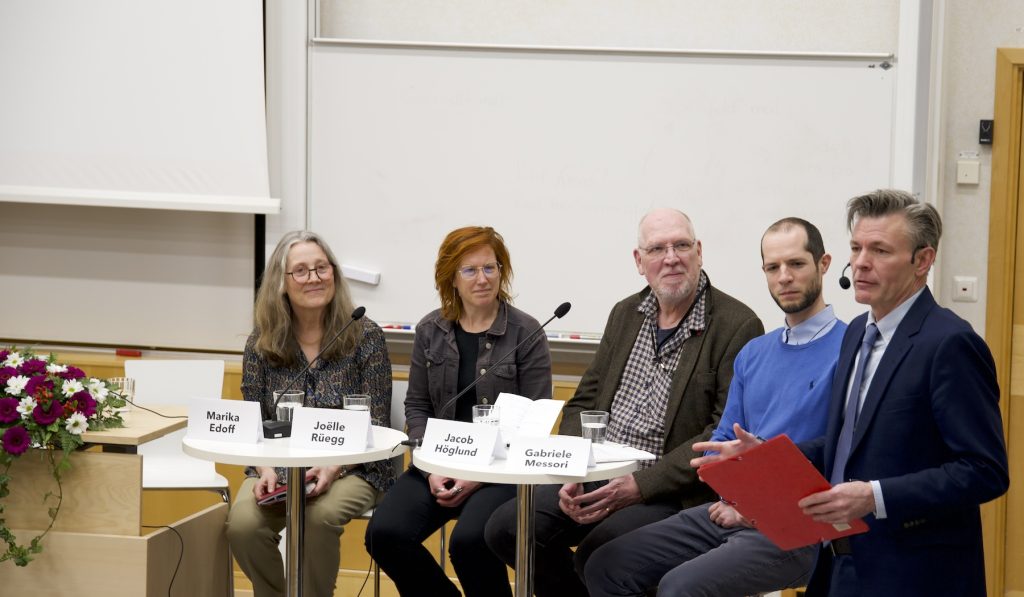
Moderated by Mikael Karlsson, Associate Professor in Environmental Science and in Climate Change Leadership at the Department of Earth Sciences, the panel discussed some of the issues raised in the lectures. This included the role of science in addressing climate issues, the question of scholarly activism, and how to deal with political backlashes and disinformation in our age of rising populism. Biermann and Gupta engaged in this lively exchange, and the audience was also given an opportunity to ask questions.
Zennström professors Frank Biermann and Aarti Gupta are visiting Uppsala University until July 2025. More photos and a recording of the event follow below.
